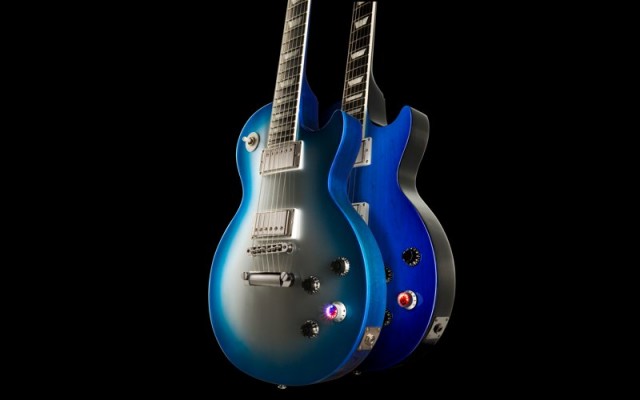
Science and art alike demand inquisitive exploration and experimentation. So, it’s encouraging that a discussion of the future of the digital guitar here on CDM brings impassioned reader debate. There’s some consensus if you dig through our comments: guitarists are compelled by adventures in new technology, and there’s widespread hope that new tech could expand guitar technique and expression, rather than (as the “Auto-Tune” name has unfortunately come to mean) a replacement for musicianship. And yes, there’s excitement about what Antares is doing – just as it’s possible to go beyond the status quo applications of their vocal tech.
But wait — there’s more.
Reflections on conservatism and guitar tech adoption Rich of Way Music sends over an extended, thoughtful rant, inspired by the discussion and directed at his fellow guitarists:
Amongst the guitar players: conservative fetishization and its discontents ;^) [Way Music]
The payoff of guitar research: Adrian Freed of the University of California Berkeley’s CNMAT research center reminds us that the research work with Gibson continues – and fruits of that research appear in products:
Thanks Peter for the mention of our work at CNMAT, UC Berkeley.
Our interactions with Gibson are ongoing and we continue to appreciate their commitment to innovation.
I am regularly confused by the lens used to talk about our research work, i.e., “Where is the product? Where are the adopters?” Good research rarely results in particular products although products are sometimes good demonstration vehicles for new ideas. Our work (as with much of UC Berkeley’s research) is more likely to sneak up on you over decades as an enabling part of the infrastructure, e.g. the first audio plugin, OSC (used in TUIO), pressure-sensing multitouch (next gen. Kindle?), Ethernet EVB, RISC (in ARM), BSD UNIX (part of OS/X), RAID etc. Watch out for how our work at the PARLAB will enable multicore efficiency for audio and music applications. There are lots of acronyms becoming part of mainstream tools already in that project….
I was going to start hyperlinking those acronyms, but I’m afraid you’ll have to Google them.
Why digital guitars matter: The Auto-Tune teaser brought about concerns about automatic intonation. (I do hear from guitarists that they’re really fond of the new automatically-tuning Gibson “robot” guitar!)
But there’s another side to the ability to track guitar pitch, and that’s the ability to combine the guitar with the sonic powers of the computer. Keyboardists have had the lion’s share of the fun over the years with software synths; just as wind, breath, and vocal controllers open up new possibilities, so, too, do MIDI guitars. While possible with any guitar that can send control, Starr Labs have posted some intriguing demos to their blog; see top and below. (I talked about Starr back in January as they introduced new controllers and guitars.)
Starr blog: http://starrlabs.blogspot.com/
And yes, you can play the digital guitar and still win a best beard contest with your more folk-oriented colleagues.
I really enjoy the Ztar guitar playing techniques. I’d love to see this in action in a performance, so readers – whatever make of MIDI guitar you may be using – do send those in.
I’m not as concerned about the conservatism, real or perceived, of any one artist. I’ll say this: regardless of the instrument, there’s vast untapped potential in new instruments and controllers waiting for brave artists to try to tap. And all of this can still draw upon knowledge and skill in traditional instruments. With a few thousand years of instrumental history at our backs, I’d say there’s no rush.
We just need a better term than “alternative controllers” or “controllerism.”
Maybe … music?